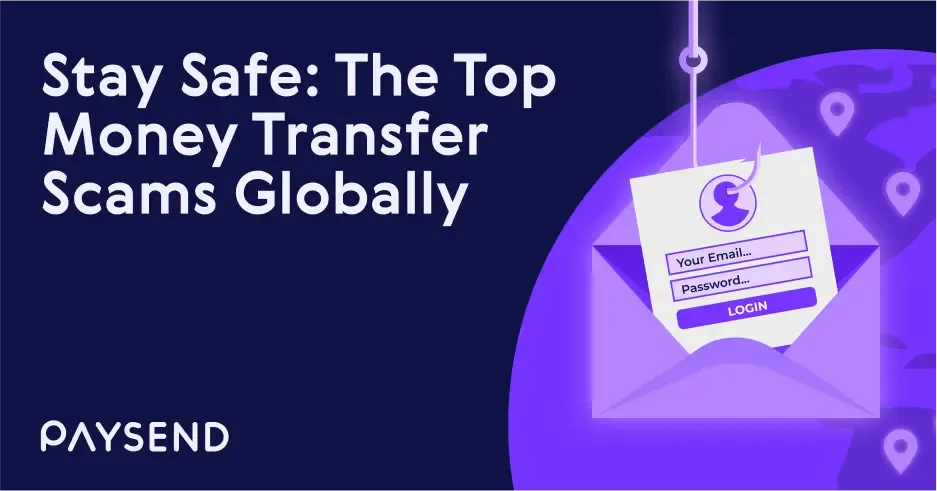How to transfer money to Ireland

For Irish expats who have moved overseas to work and study, it’s easy to feel at home given the big St Patrick’s Day celebrations around the world, and the popularity of Irish pubs in many towns and cities abroad.
We all know how important it is to stay connected with your roots and your loved ones back home, even if you live thousands of miles away. A great way for expats to do this is through money transfers.
Irish expats who send money home regularly want to find the cheapest way to send money to Ireland so that they don’t waste their money on high commission, hidden fees and poor exchange rates.
So what money transfer options are available?
How to send money to Ireland
If you want to make an international transfer to friends and family in Ireland, the options fall under two categories: offline or online.
Using an offline method like a high-street bank, post office or money transfer location is handy for people who need some guidance, but if you’re more confident with technology, an online platform is probably best for you.
Going online means that you use a smartphone app or website to send your money by yourself to Ireland. You no longer need to travel to a branch, queue up or fill in loads of transfer forms.
Plus, you don’t have to pay high bank fees because the charges are usually low, flat and transparent.
Paysend is a fast, affordable and hassle-free way of sending money online to Ireland. Using the clear and convenient Paysend app, you can cheaply and quickly send money to loved ones in Ireland at the touch of a button, all from the comfort of your own home!
If you want to discover what our 2.8 million customers think of Paysend, check out our 15,000 reviews on Trustpilot - 89% of people have given us 5 stars!
With Paysend you can send money either to a bank account or directly to a credit or debit Mastercard in Ireland. If you’re sending to a card account, all you need is your recipient’s name and a card number, so you don’t need to bother with lots of complicated bank details.
How much does it cost to send money to Ireland?
If you want to send money to a bank account in Ireland, you can do this with zero transfer fees using Paysend.
Alternatively, if you want to send money directly to a card account, it costs only £1, $2 or €1.50 (or equivalent) to send money online to Ireland with Paysend, no matter how much you want to transfer. Our low fees mean that your recipients will have even more money to spend!
You can be sure that Paysend will always have low, flat fees when you’re sending money to Ireland. For example, if you want to transfer £100 or £1,000 from the UK to Ireland, it will cost you just £1 either way.
How much EUR will my recipient receive?
Paysend uses excellent, competitive exchange rates, and along with our low fees we provide some extremely cheap money transfers to Ireland. You can find out exactly how many euros your recipient in Ireland will receive on our homepage.
How long does it take to transfer money to Ireland?
Money sent using Paysend will usually reach the recipient in Ireland within a few minutes of being sent, although it could take up to three days working days if your recipient’s bank isn’t quite as quick as us at processing payments. Having said that, 75% of our transfers arrive near-instantly - in 20 seconds or less!
Download the Paysend app now to start sending money to Ireland!
Neueste Beiträge

Sending money internationally has never been easier, but as digital payments become more popular, so do scams targeting unsuspecting senders. Fraudsters use various tactics to deceive people into transferring money, often pretending to be banks, employers, or even loved ones in distress.
To help you stay protected, we’ve outlined some of the most common and most recent money transfer scams happening around the world and how you can avoid them.

Sending money to Poland isn’t just about transactions - it’s about staying connected with loved ones, supporting family, and helping celebrate life’s special moments. Whether it’s funding daily expenses, contributing to education, or lending a hand during festive occasions, the process should be fast, secure and hassle-free. With Paysend’s partnership with Visa, transferring money to Poland has never been easier.